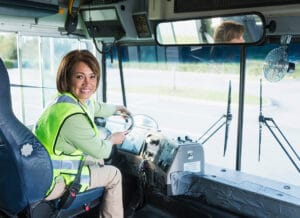Canada Sponsorship
Shuttle Driver Is Urgently Needed In Dexterra – Winnipeg, Mb

Job Details
Location: Winnipeg, Mb
Salary: $25 an hour
Job type: Full Time
Shift/Hours: Morning, night, overnight
WHO ARE WE?
We’ve been serving Canadian clients for over 75 years. The companies that began independently and now form Dexterra Group have an outstanding record of supporting the infrastructure and built assets that play a vital role in our society and helping our clients achieve higher performance and productivity. Powered by passionate people, we bring the right teams with the right skills together – offering both experience and regional expertise so companies can operate their day to day, confidently and successfully.
WHAT’S THE JOB?
The Driver/Labourer position is critical to the success of the logistics team. A driver/labourer is engaged to work only as needed and when required. The number of days and hours per day scheduled will vary based on the needs of our client. Driver’s must hold valid driver’s license, appropriate class license for the vehicle operating, clean driver’s abstract and completion of Dexterra’ s Driver training prior to operating a company vehicle.
Key Responsibilities:
- Maintaining a safe working environment at all times for Employee transport.
- Conducting daily inspections of your vehicle, maintaining a digital log of vehicle inspections and reporting any
- deficiencies to the District Manager and Logistics Team for correction.
- Maintaining your vehicle in a clean and safe operating condition.
- Follow all traffic laws and drive to road/weather conditions.
- Maintain emergency preparedness equipment in your vehicle.
- Record hours worked and submitted weekly to direct manager.
- Use the fuel card assigned to you for purchases of fuel and vehicle fluids related to vehicle operation.
- General labor duties around the camp site as directed the Company or Camp Manager.
Qualifications
WHO ARE WE LOOKING FOR?
- Lift, carry, push, or pull up to 50 lbs.
- Climb ladders or stairs.
- Stand, walk, squat, kneel or sit according to task for extended lengths of time.
- Perform repetitive hand work requiring full use of both hands.
- Work with arms above shoulder height.
- Valid drivers license
- Clear drivers abstract
Additional Information
WHAT’S IN IT FOR YOU?
- Be part of an industry that’s more important than ever!
- Employee Referral Program!
- Career advancement opportunities.
- Whereas other companies are downsizing, we are growing!
- Be #1 on day 1 by joining an industry leader.
Dexterra Group is an equal opportunity employer committed to diversity and inclusion. We are pleased to consider all qualified applicants for employment without regard to race, color, religion, sex, sexual orientation, gender identity, national origin, age, disability, protected veterans’ status, Indigenous status, or any other legally protected factors. Disability-related accommodations during the hiring selection process are available upon request.
What skills and qualities are important for Shuttle Driver
Skills and qualities that are important for a shuttle driver include:
- Valid Driver’s License: A shuttle driver must have a valid driver’s license appropriate for the type of vehicle they will be operating. This ensures they have the necessary legal authorization to drive and are knowledgeable about traffic laws and regulations.
- Safe Driving Skills: Shuttle drivers must prioritize safety on the road. They should have excellent driving skills, including the ability to operate the vehicle smoothly, maintain proper following distance, and make informed decisions in various traffic situations. Defensive driving techniques are crucial to ensure the safety of passengers and other road users.
- Knowledge of Routes: Shuttle drivers should be familiar with the routes they will be driving. This includes knowing the locations of pick-up and drop-off points, landmarks, and alternative routes in case of traffic or road closures. They may also need to navigate using GPS or other navigation systems.
- Customer Service: Shuttle drivers often interact with passengers and serve as the face of the company or organization. Strong customer service skills are important for providing a positive experience to passengers. This includes being courteous, friendly, and helpful, as well as effectively communicating with passengers and addressing their needs or concerns.
- Time Management: Shuttle drivers are responsible for adhering to schedules and ensuring on-time arrivals and departures. Effective time management skills help drivers stay punctual, plan routes efficiently, and manage unexpected delays or changes in itinerary.
- Problem-Solving: Shuttle drivers may encounter various challenges on the road, such as traffic congestion, mechanical issues, or passenger concerns. Being able to think quickly and find solutions to unexpected situations is important for maintaining a smooth operation and ensuring passenger satisfaction.
- Communication Skills: Clear and effective communication is essential for shuttle drivers. They need to communicate with passengers, co-workers, and dispatchers to provide updates, relay information, and ensure the smooth coordination of shuttle services.
- Flexibility and Adaptability: Shuttle drivers may need to adjust their schedules, routes, or services based on passenger needs or changes in plans. Being adaptable and flexible allows drivers to respond to unexpected situations and provide a high level of service.
- Professionalism: Shuttle drivers represent their company or organization, so maintaining a professional demeanor is crucial. This includes dressing appropriately, following company policies, and demonstrating a positive and respectful attitude towards passengers and colleagues.
- Safety Awareness: Prioritizing passenger safety and following all traffic and safety regulations is vital. Shuttle drivers should be familiar with and adhere to safety protocols, perform regular vehicle inspections, and report any maintenance or safety concerns promptly.
These skills and qualities contribute to the overall experience of passengers and ensure the efficient and safe operation of shuttle services.
What education and certification are required to become a Shuttle Driver
The specific education and certification requirements to become a shuttle driver can vary depending on the employer, location, and type of shuttle service. However, here are some general guidelines:
- Education: Typically, a high school diploma or equivalent is the minimum educational requirement for becoming a shuttle driver. Beyond that, formal education is not usually a mandatory requirement for this role.
- Driver’s License: A valid driver’s license is a fundamental requirement for becoming a shuttle driver. The type of license needed may vary depending on the size and capacity of the vehicle being driven. Generally, a regular driver’s license (such as a Class C license) is sufficient for operating a standard shuttle or passenger van. However, larger vehicles may require a commercial driver’s license (CDL) with specific endorsements.
- Commercial Driver’s License (CDL): Depending on the size and weight of the vehicle, and if it involves transporting a certain number of passengers, a CDL may be required. CDL requirements vary by country, state, and vehicle type. The CDL usually involves passing written and practical tests that assess knowledge and skills related to driving commercial vehicles.
- Passenger Endorsement: Some shuttle driving positions may require a passenger endorsement on the CDL. This endorsement demonstrates proficiency in safely transporting passengers and understanding regulations specific to passenger transport.
- Medical Certification: In certain jurisdictions, shuttle drivers may be required to undergo a medical examination and obtain a medical certificate or card. This ensures that drivers meet specific health standards necessary for safely operating a vehicle and carrying passengers.
- Background Checks: Many employers conduct background checks, including driving record checks, criminal history checks, and drug screenings, to ensure the safety and security of passengers and comply with legal requirements.
It is important to note that specific requirements for becoming a shuttle driver can vary. It is advisable to research the local regulations and check with potential employers to understand their specific requirements for education, licensing, and certification.
Additionally, while not mandatory, gaining experience in customer service roles, such as in hospitality or transportation, can be beneficial. Strong communication skills, a clean driving record, and a history of safe driving practices are also highly valued qualifications for shuttle drivers.
Who can apply to this job?
The employer accepts applications from:
- Canadian citizens and permanent or temporary residents of Canada.
- Other candidates with or without a valid Canadian work permit.
How to apply
Online: Apply On Company Site
What is the work environment like for a Shuttle Driver
The work environment for a shuttle driver can vary depending on the specific type of shuttle service and the organization they work for. Here are some common aspects of the work environment for shuttle drivers:
🔥Latest Job Vacancies in Canada (Updated Daily)
🇨🇦 Visa Sponsorship Jobs in Canada – Caregiver
Apply Now🇨🇦 Factory Jobs in Canada with Sponsorship – Ontario
Apply Now🇨🇦 Construction Jobs in Canada with Sponsorship – Edmonton, AB
Apply Now- Driving: The primary work activity for shuttle drivers is operating a vehicle to transport passengers from one location to another. Depending on the specific shuttle service, this may involve driving within a specific area, such as an airport or hotel shuttle, or driving along predetermined routes, such as a commuter shuttle.
- Passenger Interaction: Shuttle drivers interact directly with passengers on a daily basis. They may assist passengers with boarding and exiting the vehicle, provide information about the route or destination, and address any questions or concerns passengers may have. Strong customer service and communication skills are important for creating a positive passenger experience.
- Traffic Conditions: Shuttle drivers work in various traffic conditions and face the challenges associated with congestion, road construction, and other traffic-related issues. They need to navigate safely and efficiently while following traffic laws and regulations.
- Time Constraints: Shuttle drivers often operate on schedules and have specific departure and arrival times to adhere to. They need to manage their time effectively to ensure on-time arrivals and departures, taking into account factors such as traffic and passenger needs.
- Weather Conditions: Shuttle drivers are exposed to various weather conditions while on the road, including rain, snow, heat, or cold. They need to adapt their driving techniques and take appropriate precautions to ensure the safety of passengers and themselves.
- Vehicle Maintenance: Shuttle drivers may be responsible for conducting routine vehicle inspections, such as checking tire pressure, fluid levels, and overall vehicle condition. They should report any maintenance or safety issues to the appropriate personnel to ensure the safe and reliable operation of the vehicle.
- Shift Work: Depending on the shuttle service, drivers may be required to work different shifts, including early mornings, evenings, nights, weekends, or even holidays. Flexibility in working hours is often necessary in this role.
- Independence and Autonomy: Shuttle drivers typically work independently, with limited supervision or direct oversight while on the road. They need to exercise good judgment and decision-making skills to handle unexpected situations and ensure passenger safety.
- Safety Considerations: Shuttle drivers are responsible for the safety of their passengers and themselves. They need to follow all safety protocols, including wearing seat belts, enforcing passenger safety rules, and being prepared to respond to emergencies or accidents.
Overall, the work environment for a shuttle driver involves a combination of driving, passenger interaction, time management, and adherence to safety procedures. The specific work environment can vary based on the nature of the shuttle service, such as airport shuttles, hotel shuttles, employee shuttles, or other types of shuttle services.











